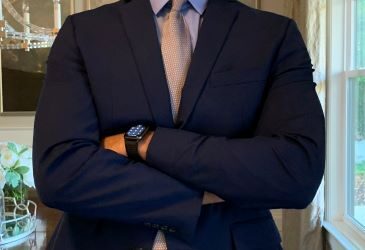“What if our racial problems lie with white people, and what if the white church could be a leader in addressing them?”
Why am I calling out white churches? They are an institution with the power of God behind them, but too often, when it comes to addressing racism, they exhibit a spirit of fear. Is it fear of losing wealthy donors? Fear of making people uncomfortable? Do they not see a problem when their congregation is all the same race?
I know what you are going to say — there are black churches too. I wonder, if black people weren’t allowed to drink from the same water fountain, were they allowed to worship in the same building? Hmmm.
Years ago, I did a Bible study called Experiencing God. One of the central messages of the study is, if you want to join in God’s work, you don’t have to wait for the clouds to part to give you a message –just look where God is working right now. Sometimes His messages are fairly cryptic. Today, I think He is hitting us over the head.
What if our racial problems lie with white people, and what if the white church could be a leader in addressing them?
Below is my column that ran in the News & Observer after Ferguson:
It starts with Sunday Morning
If the compasses, by which many of us set our moral paths, are comfortable remaining predominantly one race, what incentive do any of us have to improve relations with those who don’t look like us?
Some might say the verdict in the case against the police officer who shot and killed Michael Brown opened an old wound. Would that be accurate? Is this an old wound or a break that was never reset, never put in a cast, but just covered in politically correct scar tissue?
The Civil Rights movement created historic leaps in the treatment of minorities. Schools are integrated. Interracial marriage is legal. It isn’t scandalous to date or marry outside your race. We have a black President. Racial jokes are frowned upon in polite society. Prominent people have lost jobs because of racist remarks. Overt racism isn’t tolerated.
Progress has been made on many fronts.
Why is the faith community so slow in embracing this new America? If a church which teaches its followers to respect all of our Maker’s creations can’t include them all, how far have we really come?
When my blended family moved to North Carolina we were asked by many, “what church do you attend?” Always our reply was, “we are looking for a church. Does your church have black people?” The person would look away and do a mental calculation. The answer was always the same: “some.” We would pry, “by some do you mean a hundred? Twenty? Could you be more specific?” More often than not the answer involved a family which had adopted a few black children. To this day I still think of those two or three kids surrounded by hundreds from another race.
After several unfortunate experiences in various churches we found our church home. It took quite a while.
Years ago I attended a neighborhood Christmas ornament exchange. I was seated next to a woman who explained to me why she was unhappy with the school her son was attending. There were too many kids bussed in from outside of our community. I asked her what she didn’t like about that. She began to relay a story to me about how when she was in middle school, a group of black girls gave her a very hard time. I thought for a minute, and then said, “Y’know, I moved when I was in 6thgrade. I was tormented by a group of girls my entire first year in my new town. They were white girls. It never occurred to me to not like the white race because of that incident.”
I asked a friend who is a psychologist about these two similar stories with very different outcomes. He said, “It’s all about your frame of reference. You knew many, many white people so when this happened to you, you didn’t think this was how all white people behaved. She may have known few black people, so for her, these girls represented all black people.”
We all clearly need to broaden our frames of reference for races besides our own. Racial relations aren’t going to improve through legislation. They aren’t going to be repaired by the schools. Businesses can’t fix this one either.
If we really want to change things we need to begin by examining where we spend our Sunday mornings. If it is true that a racist is someone who doesn’t appreciate God’s artwork, when we look at our own church’s congregation do we see the beautiful, multicolor portrait God has created, or is it all black, or all white? Are we okay with that?
The story of Ferguson might begin on Sunday morning. It could end there too.




0 Comments